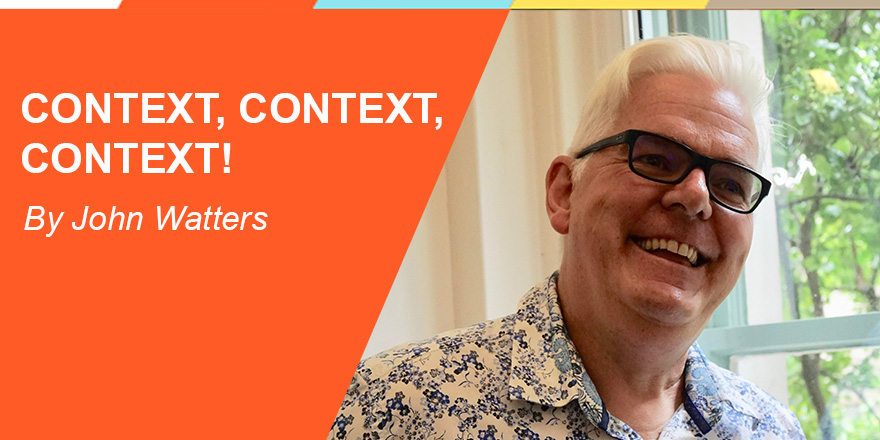

In 2014 Pfizer launched a bid for AstraZeneca (about £70bn). AstraZeneca, sceptical of the business case for a deal, managed to resist after a bitter battle. It turns out that Pfizer’s case was to solve its big problems of a 24% corporate tax rate; an accumulation of roughly $17bn in overseas cash, which would attract a hefty penalty if repatriated to the US; and a patchy pipeline of new drugs, confirming AstraZeneca’s scepticism that it “appears to have been fundamentally driven by the corporate financial benefits to its shareholders of cost savings and tax minimisation”. Just days ago, perhaps similarly, Unilever rejected Kraft’s £115bn takeover bid.
This way of looking at corporate value should not go unquestioned. As Andrew Haldane, Chief Economist at the Bank of England said “Despite its durability and success, across countries and across time, the corporate model has not gone unquestioned… (there is) a rising tide of criticism of companies’ behaviour, from excessive executive remuneration, to unethical practices, to monopoly or oligopoly powers, to short-termism. These concerns appear to be both strongly-felt and widely-held.”
What might be getting in the way of business and its leaders from taking a long term sustainable perspective?
Casting light on some myths of corporate ownership and long term value will, I believe, help us better navigate to a more sustainable and satisfying future.
A brief history of company ownership
While the history of companies goes back a long-time, incorporation was set out in England in the early 17th century. The famous East India Company received its Royal Charter in 1600 as a joint-stock company. Never-the-less it wasn’t until the middle of the 19th century, in England at least, that the more significant change happened, the move from unlimited liability to limited liability companies. The company limited by shares, both private and public, has gone on to become the predominant company form and remains so today.
With this change, a ‘share’ was no longer an interest in the company’s assets and liabilities but a claim on future profits. It became the company itself who own its assets and liabilities. The concept of the legal person was established – it is the company, as a legal person, who sues or is sued. Many have pointed out that a more accurate term would be ‘no liability’, as a shareholder only stands to lose the value of their shares and has no liability for the actions of the company.
From a situation in which share owners were personally liable, and therefore had great interest in the actions of the company, the relationship between share ownership and an interest in control became less important, and thus the responsibility involved in ownership waned. There we also, of course, great benefits because of the more efficient use of capital.
Shareholder primacy
In a foundational governance text in 1932, The Modern Corporation and Private Property, Berle and Means raised a concern that the corporation might become ‘ownerless’, where directors become dominated by their managerial role rather than their supervisory one and act in their own interests without accountability to their shareholders. The logic was that if shareholders are the risk-takers they have most incentive for company success and are best placed to exercise control rights. This led to the idea of ‘shareholder primacy’ where the primary responsibility of directors is the success of the company for the benefit of the shareholders, which mitigates the risk of director’s interests deviating from those of the shareholders (the ‘principal/agent problem’).
Shareholder primacy and the relationship between the company, directors and shareholders still leads to confusion today; for example, directors are the agents of the company; they are not agents of the shareholders. Shareholders have no right to instruct directors. They can elect, or not elect, directors, which might give the impression that they can instruct them, as it gives them indirect power and influence.
As an example Paul Polman as CEO of Unilever has tried to turn this ownership convention on its head, urging shareholders to put their money somewhere else if they don’t buy into Unilever’s long-term sustainability value-creation strategy. He made it clear that short term speculative shareholders are not welcome and shareholders should no longer expect to see quarterly reports along with earnings guidance for the stock market from the company. For Polman and Unilever this may well be put to the test as Kraft consider their takeover options.
This recognises that shareholders are not the only risk takers; there are others, including employees, suppliers, the environment and wider society, as we’ve seen most obviously during the financial crisis. This recognition exposes the flaw in shareholder primacy.
The shareholder ownership myth
The shareholder-centric view has gone on to become the dominant narrative and reinforced the idea of shareholders as owners. Despite shareholders no longer being the owners of company assets (or liabilities) over 150 years later we still hear the assertion that they are. They are not the owners of companies, they own shares with certain rights attached.
It is perhaps understandable why this myth persists as, at least partly, we still afford shareholders primacy and some ‘ownership’ rights. Here in the UK they include the right to vote on director elections as well as receiving a dividend.
That the long-term interests of companies may conflict with short term interests of many investors is obvious and is at the heart of the problem with the current model, we keep hearing calls to take a long-term perspective yet those leading companies believe they are there to satisfy masters with often short term interests. There is an inherent conflict in the model which raises the question of how to evolve this otherwise almost inevitable outcome?
The maximising shareholder value myth
By the 1980s another myth took shape – that there is a requirement for companies and therefore their directors to maximise shareholder value (MSV). The implication is that the success of, and even the purpose of, the company is to MSV. There is no such requirement.
Unfortunately, the combination of soft-law standards of financial accounting and corporate governance codes “powerfully define the domains of accountability of corporate management in ways that support MSV”. So MSV became locked-in in many ways:
This combination of ideas: shareholders as owners, shareholder primacy, and MSV, became the dominant ideology and persists to this day. As we have seen in recent years, it has at its worst caused enormous damage not the least of which the privatisation of gains and socialisation of losses. If MSV were a legal requirement, we might rightly question its wisdom. That it is not a legal requirement and yet is treated as if it were, belies rational explanation. This is now beginning to be questioned led by initiatives like Tomorrow’s Company, the Purpose of the Corporation Project, and the Modern Corporation Project.
The capital market myth
We are often led to believe that capital markets are the oil that lubricates the entrepreneurial machine and that stock markets are central to this. This is greatly overplayed, as except when purchasing shares in the primary market, eg at the initial public offerings stage, purchasing shares does not provide capital to the company. It is simply the exchange of shares between buyers and sellers with no movement of capital to the company. This has become more of an investment market where ownership and its responsibilities are less, if at all, relevant.
Moving to a more sustainable future
I find it interesting that despite evidence of a failing model of governance, there are many companies doing a fantastic job, whether serving their customers and wider stakeholders (employees, communities, etc) and rewarding investors and being purposeful businesses. They are managing this under the current ownership and governance model, yet I sense the model is not yet actively supporting the shift to a long term sustainable perspective. As Tomorrow’s Company say “continually updating how our companies are owned and governed will be critical to creating wealth in these uncertain times.” While we see some examples of adapted company forms like B-Corp emerging it seems there is much more needed.
Two recent reports by Tomorrow’s Company (Promoting long-term wealth: reshaping corporate governance and the Purpose of the Corporation Project (Corporate Governance for a Changing World: Report of a Global Roundtable Series) include a number of areas of focus:
At the Creating Sustainable Companies Summit I heard John Kay recount how on route to the company’s demise ICI’s purpose changed from: “The world’s leading chemical company serving customers internationally, through the innovative and responsible application of chemistry and related science. Through the achievement of our aim we will enhance the wealth and wellbeing of our shareholders our employees our customers and the communities which we serve and in which we operate.”
to:
“Our objective is to maximise value for our shareholders by focusing on businesses where we have a market leadership, a technology edge, and a world competitive cost base”.
Conversely Ray Anderson, late CEO of Interface said “there is no more strategic issue for a company, or any organization, than its ultimate purpose. For those who think business exists to make a profit, I suggest they think again. Business makes a profit to exist. Surely it must exist for some higher, nobler purpose than that.”
Andrew Haldane, reflected recently “Challenges to the shareholder-centric company model are rising, both from within and outside the corporate sector. These criticisms have deep micro-economic roots and thick macro-economic branches. Some incremental change is occurring to trim these branches. But it may be time for a more fundamental re-rooting of company law if we are to tackle these problems at source. The stakes – for companies, the economy and wider society – could scarcely be higher.”
If you would like to discuss your strategy for a long term sustainable value and purposeful business, please email me.
Richard Baker is an Associate of Future Considerations with over 20 years’ experience in supporting organisations to develop new ways of working that better reflects the complexity of the modern work environment. He specialises in organisational design, corporate governance and Board practices.
This blog is an adaption of an article originally published in Enlivening Edge Magazine.
Future Considerations Ltd
29 Adonis Street, Acropolis
Subdivision, Libis,
Quezon City,
Philippines 1110
Jon’s early career designing applications led to him becoming IT director for a market-leading multinational. His systemic perspective, allied with a background in psychology and subsequent leadership experience inside major organisations was followed by intensive learning in personal development, values systems and multiple intelligences. Brought together, these create a transformational perspective for understanding and developing organisations as living systems. Jon is a master trainer in Spiral Dynamics, a founder director of the UK chapter of Conscious Capitalism and a certified Spiritual Intelligence coach. He is the author of several books and articles and is developer of Relational Being, a visionary whole systems approach to evidence-based spirituality, complexity science, human emergence, societal change and conscious business. This breadth of experience and deep understanding informs his work as a consultant, coach, trainer and facilitator.